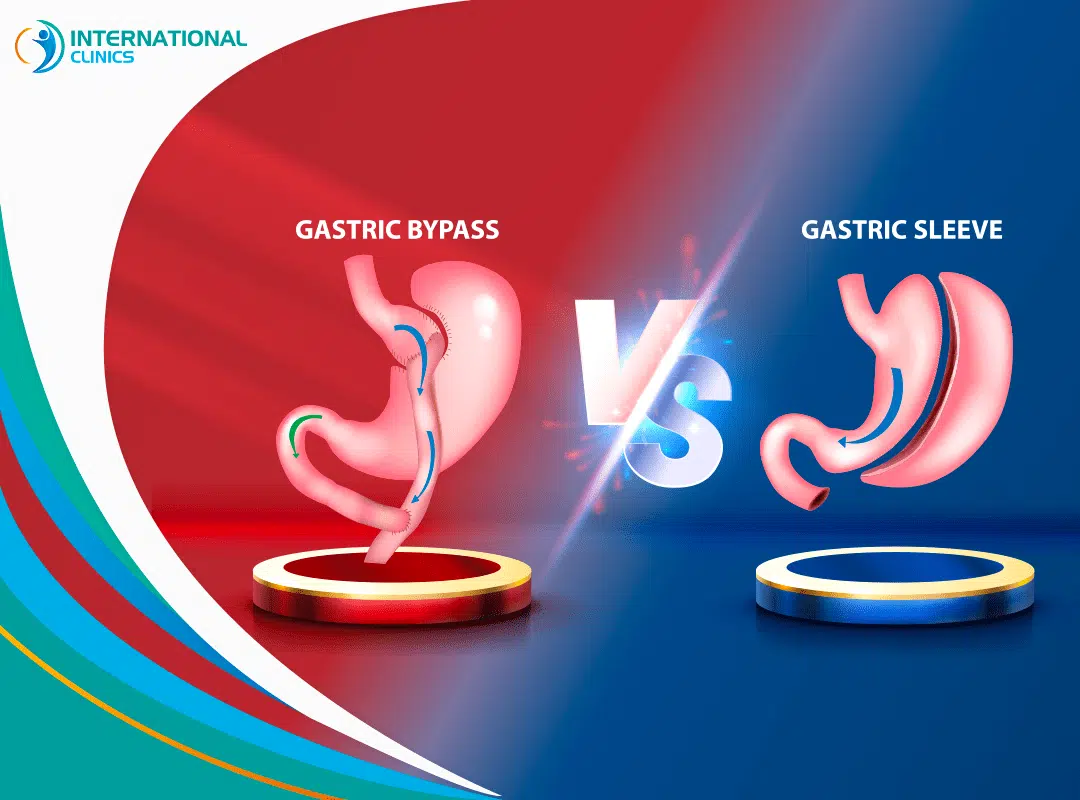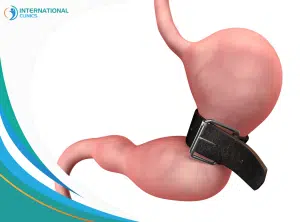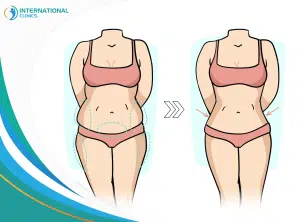Struggling to achieve and maintain a healthy weight is no longer justifiable because many bariatric procedures, such as gastric sleeve and gastric bypass, are available to solve the problem of obesity. The question remains, however, about gastric sleeve vs gastric bypass. Which one is the best?
Indeed, choosing between a gastric sleeve and a gastric bypass is one of the most common dilemmas patients encounter. Both can effectively combat obesity and its related health problems, but clearly, there are differences between the two options.
As you may already know, both gastric bypass and gastric sleeve are two of the most successful forms of obesity surgery in Turkey. Though both can lead to significant weight loss within 1-2 years post-surgery, there aren’t created equal. Thankfully, there is much research done on both procedures, and the results are positive for both, especially when it comes to survival.
Gastric Sleeve vs Gastric Bypass: Definitions
Both gastric sleeve and gastric bypass work by limiting the amount of food you can consume. They shrink your stomach and turn it into a smaller pouch. The new pouch will fill up quickly after eating, so you can’t really consume a lot of food anymore.
In addition, your body will produce less ghrelin, the hunger hormone. However, the methods used to make the new stomach pouch differ between the two procedures. The definitions of both procedures are clarified below:
Gastric Sleeve
Gastric sleeve surgery, also referred to as sleeve gastrectomy or vertical sleeve gastrectomy (VSG), is a restrictive weight-loss surgery that limits the amount of food you can consume during a meal by permanently removing roughly 80% of your stomach. This restriction helps you feel full earlier, thereby aiding weight loss.
Of course, the removal of 80% of the stomach will leave a slender, vertical, and banana-shaped pouch that makes up the remaining 20%. This modification helps facilitate your weight loss by making you less capable of consuming large amounts of food while also inducing satiety with smaller meals.
Following sleeve gastrectomy, the stomach’s capacity decreases to merely 1 ounce (0.01 kg). Gradually, the stomach pouch stretches until it can accommodate 4 – 8 ounces (0.1-0.2 kg).
Gastric Bypass
Gastric bypass surgery, also called Roux-en-Y gastric bypass surgery, is a weight loss procedure that combines restrictive and malabsorptive techniques. Your surgeon will remove a large portion of your stomach and the first part of your small intestine to create a small stomach pouch.
This newly formed pouch is then reconnected to the remaining section of your small intestine. The surgery results in a significantly smaller stomach, which restricts the amount of food one can eat at a time, leading to weight loss.
As a result, the surgery reduces the amount of food you can eat and prevents your body from absorbing too many calories. During the procedure, the small intestine is rearranged to allow food to enter the small stomach while bypassing the lower part of the stomach.
Gastric Sleeve vs Gastric Bypass: The Difference
Gastric bypass and gastric sleeve surgeries might seem quite similar at first glance, at least on the surface. For instance, they both require both procedures to be similar in their objective of limiting food portions to help you shed excess weight.
Both procedures are typically recommended for individuals with a Body Mass Index (BMI) over 40 or very obese, but recently, more surgeons have started to recommend gastric sleeve in Turkey to people with low BMI.
Moreover, both procedures also require a lifelong commitment to a healthy diet and nutritional supplement intake to ensure that your body is receiving the required vitamins, minerals, and other vital nutrients. However, there is an important difference between the two procedures:
| Gastric Sleeve | Gastric Bypass | |
| Classification | This is a restrictive procedure that reduces the amount of food you can eat in one sitting. | This is both restrictive and malabsorptive, meaning that it also prevents your body from absorbing too many calories. |
| Procedure | A portion of the stomach is removed, resulting in a banana-shaped stomach. | A small pouch is attached to the intestine to bypass the stomach. |
| Weight Loss Results | Weight loss is slower but steady, with a 60-70% reduction in excess weight within the first 12-18 months. | Expect to lose 60-80% of excess weight in the first 1-2 years after the procedure. |
| Recovery | 2 to 4 weeks | 2 to 4 weeks |
| Risks | Lower risk of dumping syndrome | Dumping syndrome is more common |
Gastric Sleeve vs Gastric Bypass: Benefits

Both gastric bypass and gastric sleeve surgery in Turkey are very advantageous for weight loss. They’re also capable of improving obesity-associated illnesses such as diabetes and high blood pressure. Here are some of the key benefits of both procedures:
Gastric Sleeve Benefits
- Laparoscopic surgery: The procedure is typically done with the laparoscopic technique, which is less invasive and spares the need for cutting open the abdomen with a surgical knife. This can lead to faster recovery times.
- No prosthetics or maintenance: Unlike other bariatric surgeries, such as the Lap Band, gastric sleeve surgery doesn’t involve any prosthetic material or surgical maintenance.
- Limited hospital stay: The surgery usually takes less than an hour, and most patients only need to stay in the hospital or clinic for one or two nights maximum.
- Reduced cardiovascular risk: The surgery can lower the risk of stroke and heart attack in obese patients.
- Fast weight loss: Patients can see major changes in the first 6 months after the surgery and may lose up to a third of their excess body weight within a year.
- Major weight loss: Patients can expect to lose at least 60% of their excess body weight in the years following the procedure.
- Reduced hunger and appetite: The surgery can lead to a reduction in ghrelin levels, which can decrease feelings of hunger and appetite.
- Improved health outcomes: Patients with type II diabetes and hypertension may see improvements in their conditions after gastric sleeve surgery. Some may stop using the medications that deal with these conditions.
- Reduced cancer incidence and mortality: According to a recent study, bariatric surgeries have been associated with a significant reduction in cancer incidence and mortality.
- Other benefits: The surgery can also ease joint pain, increase fertility, reduce urinary incontinence symptoms, and treat polycystic ovary syndrome (PCOS) in female patients.
Check out: Gastric sleeve 10 years later
Gastric Bypass Benefits
- Significant weight loss: Patients who undergo gastric bypass surgery can experience impressive weight loss results in a very short time. This leads to a decrease in the risk of obesity-associated diseases such as hypertension and heart disease.
- Lower risk of type 2 diabetes: Obesity is a major risk factor for type 2 diabetes mellitus, and gastric bypass surgery can reduce this risk by promoting weight loss. The risk of death due to obesity is also reduced by nearly 40% after this procedure.
- Lower risk of venous thromboembolic disease: Obesity increases the risk of venous thromboembolic disease. Gastric bypass surgery can reduce this risk by a large margin.
- Lower risk of hyperlipidemia: High blood cholesterol and triglyceride levels are common in obese individuals. Gastric bypass surgery can help lower these levels quite significantly.
- Improved sleep: Obstructive sleep apnea and disrupted sleep are common complications of obesity, but they can often be resolved after gastric bypass surgery.
- Reduced joint pain: Excess body weight can lead to lower back pain and joint pain. Gastric bypass surgery can help improve these conditions.
- Relief from GERD: Gastroesophageal reflux disorder (GERD) is a common problem for people with obesity. Gastric bypass surgery can provide relief from this condition.
Gastric Sleeve vs Gastric Bypass: Risks
When it comes to surgical procedures, there’s always some level of risk involved. Both gastric bypass and laparoscopic surgery are relatively safe options. However, gastric bypass has a slightly higher rate of complications compared to gastric sleeve surgery.
Risks of Gastric Sleeve
Surgeons make tiny incisions that are about the size of a coin to insert their surgical tools during laparoscopic gastric sleeve. This approach tends to be less problematic than open surgeries, which require larger incisions. In any case, the risks involved in gastric sleeve include:
- Heartburn or gastroesophageal reflux disorder (GERD)
- Stomach pouch narrowing or bowel obstruction
- Risks associated with anesthesia
- Weight regain
- Loose or saggy skin
- Vitamin and nutrient deficiencies due to decreased food intake
Risks of Gastric Bypass
As mentioned before, gastric bypass is a more complex procedure. Hence, it carries an increased likelihood of complications compared to gastric sleeve. Indeed, gastric bypass surgery can come with its own set of issues:
- Stomach perforation
- Bowel obstruction
- Nutrient deficiencies
- Ulcers
- Loose or saggy skin
- Dumping syndrome (nausea, dizziness, and abdominal pain after eating)
- Gallstones
Gastric Sleeve vs Gastric Bypass: Long-Term Success

Gastric bypass surgery tends to result in greater weight loss compared to gastric sleeve surgery in the short term. However, over time, the weight loss achieved by gastric sleeve surgery begins to catch up with that of gastric bypass surgery.
On average, gastric bypass patients tend to shed between 50 to 80% of their excess body weight within 2-3 years following the procedure. On the other hand, gastric sleeve patients can expect to lose between 60 to 70 % of their excess body weight within that same time frame.
Apparently, both procedures have intriguing profiles when it comes to long-term success. However, bariatric surgery is not a one-size-fits-all solution. everybody is unique and has different needs and plans. if you’re considering a weight loss procedure, it’s important to work closely with your doctor to determine which option is best for you.
Gastric Sleeve vs Gastric Bypass: Costs
The cost of both procedures varies depending on several factors, such as where you live, follow-up care, and other factors. Generally speaking, gastric bypass surgery tends to be more expensive than gastric sleeve cost in Turkey due to its complexity.
Now, here’s where things can get a bit tricky: which one can give a bang for the buck? A gastric sleeve is a cheaper, less invasive, and very effective option. For many people, a gastric sleeve is a way-to-go option. In any case, the below table displays the estimated cost of both surgeries in different countries:
Gastric Sleeve Cost
| Turkey | 3500-4000 US dollars |
| Germany | 13000-16000 US dollars |
| United States | 13000-20000 US dollars |
| United Kingdom | 9000-15000 US dollars |
| Poland | 5000-8000 US dollars |
| India | 4000-6000 US dollars |
Gastric Bypass Cost
| Turkey | 4000- 6000 US dollars |
| Germany | 14000-17000 US dollars |
| United States | 15000-2000 US dollars |
| United Kingdom | 10000-16000 US dollars |
| Poland | 7000-9000 US dollars |
| India | 5000-7000 US dollars |
Gastric Sleeve vs Gastric Bypass vs Lap Band
Gastric sleeve, gastric bypass, and Lap Band are the three main bariatric procedures that overweight people can have to combat obesity and improve their overall health. The differences between the three procedures in terms of complexity and results are shown below:
| Gastric Sleeve | Gastric Bypass | Lap Band (Gastric Band) | |
| Procedure | Involves removing most of your stomach vertically through open surgery or laparoscopic techniques. | Involves stapling the top of the stomach to create a small pouch which is then connected to the small intestine. | A band is placed around the top of the stomach to stimulate nerve endings and trick the brain into feeling full. |
| Complexity | It’s irreversible but less invasive than gastric bypass, but more invasive than Lap Band. | The most complex bariatric surgery. | A less invasive option than a gastric sleeve or gastric bypass but requires persistent follow-up to maintain the band. |
| Results | People can lose up to 70% of their excess weight. | The most effective type of bariatric surgery in terms of weight loss. | Helps in weight loss, but the results are far less than what gastric bypass or gastric sleeve can yield. |
The Bottom Line
Choosing between gastric sleeve vs gastric bypass is a source of confusion for many patients who have reached a conclusive decision about undergoing bariatric surgery. Although both procedures are very similar in terms of weight loss results, they actually differ in many things, including the nature of the surgical intervention, the cost, and other things.
International Clinics in Turkey provides both gastric sleeve and gastric bypass, along with other types of bariatric procedures, such as BariClip and gastric balloon. You can contact us right now using the Contact Us button below.

Frequently Asked Questions (FAQs)
What Is a Gastric Sleeve Vs Gastric Bypass?
Gastric sleeve and gastric bypass are both weight loss procedures, but with different methods to achieve the goal. The gastric sleeve involves the removal of a part of the stomach, which restricts the amount of food you can consume. On the other hand, gastric bypass involves creating a smaller stomach pouch and rerouting the small bowel.
Which Is Better a Gastric Sleeve or Bypass?
A gastric bypass is better than a gastric sleeve for weight loss, but it’s riskier. Gastric sleeve is less risky but is better for people who only need to lose up to 60% of their excess weight.
Is Gastric Sleeve or Bypass Cheaper?
Gastric bypass is more expensive than gastric sleeve because it’s more complicated. In Turkey, the cost of both procedures remains far less than in other parts of the world.
Who Should Get Gastric Sleeve vs Gastric Bypass?
Gastric sleeve is ideal for patients who seek less invasive and less risky procedures. For those who seek extensive weight loss, however, gastric bypass remains the top choice.
Gastric Sleeve vs Gastric Bypass vs Lap Band Cost?
The cost of a gastric sleeve is usually lower than that of a gastric bypass but often equals (or a bit higher) that of Lap Band. In the United States, a gastric sleeve can cost around 13000 US dollars, while a gastric bypass can cost 20000 US dollars. Lap Band cost nearly 12000 US dollars.
Why Do People Look Older After Gastric Sleeve?
People look older after gastric sleeve because of loose skin and loss of facial volume due to weight loss.
Read more:
Gastric Sleeve Surgery Abroad: Best Destinations & Packages
Obesity Surgery Cost in Turkey






